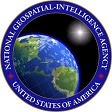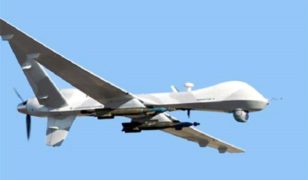NGA posts Analysis Workflow Services RFI
 The National Geospatial-Intelligence Agency (NGA) in support of the Analysis Workflow Services Program Office is seeking information on how interested contractors could provide the services via modular contracts. Responses are due by 12:00 p.m. ET on March 14.
The National Geospatial-Intelligence Agency (NGA) in support of the Analysis Workflow Services Program Office is seeking information on how interested contractors could provide the services via modular contracts. Responses are due by 12:00 p.m. ET on March 14.
NGA is moving current analytic requirement work orchestration capabilities into the future. As part of this movement, NGA will replace, modify, or re-host sections of the current work orchestration system, Cedalion, to meet the needs of evolving tradecraft. Specifically, where it is beneficial NGA will 1) replace outdated capabilities with new capabilities; 2) modify, or evolve, current capabilities; or 3) re-host current capabilities, not related to work orchestration, to other NGA service providers.
The focus is on analytic work orchestration and task management services not exploitation, collection, or content services.
The purpose of this Request for Information (RFI) is to gain information on current Industry practices that would meet NGA’s requirements.
NGA continues to perform engineering analysis to identify tools and services that will provide capabilities to execute the transformed analytic mission. NGA envisions a decentralized cloudbased architecture comprised of a series of standards based, interoperable services and tools that will support the entire National System for Geospatial-Intelligence (NSG) and Allied System for Geospatial-Intelligence (ASG). The new NGA architecture will include elements that enable implementation of initiatives such as Broker and Object Based Production; leverage projected advances in the fields of Automation, Augmentation, and Artificial Intelligence; and realize the long term objective of providing anticipatory intelligence.
For instance, in the future NSG/ASG architecture, analysts will exploit expansive and diverse GEOINT content through model-driven and advanced analytics.
Also, Automation will permeate the mechanics of GEOINT, with subject matter experts providing guidance and context. Exploitation of data and selection of collection assets will predominantly operate as automated systems. Humans will train the systems and research new methods, verifying automated outputs and investigating intellectual nuances machines cannot understand.
Additionally, repeatable tasks, such as creating observations from imagery exploitation and selecting data sources, will run autonomously with human oversight.
PLANNED ACQUISITION/OBJECTIVE:
NGA plans to acquire some or all of the above via a modular contracting method. There will be a collection of small, focused contracts to develop evolved or new capabilities, and two main efforts to maintain software baselines. Specifically, the anticipated effort breaks down as follows, in no particular order:
Category 1 – Software Development for Analysis Workflow Services: A series of multiple contracts and methods to develop new capability sets for the Analysis Workflow Services. This will require agile development of new capabilities, which are then passed to the release train contractor (Category 2, below) for integration, delivery, sustainment, and maintenance. These contracts are anticipated to be narrowly scoped and relatively short durations to create opportunities for contractors with the best technologies and niche skills to rapidly insert innovative solutions. The government does anticipate a period of time, after delivery, that the delivering contractor services will be required for DR work-off.
Category 2 – Release train and Operations and Support for the new AWS baseline: An effort that 1) establishes, executes, and manages the processes for movement of new and enhanced components from the developer (Category 1) through testing and deploying those capabilities; and 2) provides preventive, perfective, and adaptive maintenance of the future Analysis Workflow Services baseline.
Full information is available here.
Source: FedBizOpps







